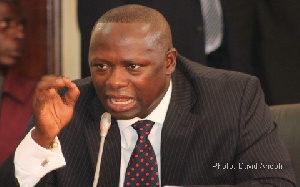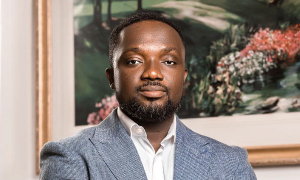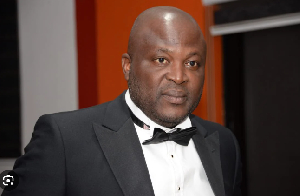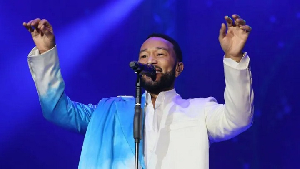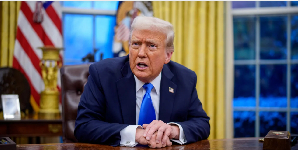At the just ended African Union summit held in Accra on July 1st – 3rd 2007, two schools of thought emerge regarding how the continent should unite for the common good of continental and Diaspora Africans. The two schools are the Gradualists led by President Thabo Mbeki of South Africa and the Instantists led by the Libyan leader Gaddafi and President Wade of Senegal.
According to the gradualists, the existing Economic Common Associations must be strengthen and use as building blocks for a union government that would eventually lead to United States of Africa. The Mbeki camp sees the ECAs as most viable and perfect vehicle for a united Africa that has eluded the continent for over half a century.
The instantists led by Gaddafi and Wade argue passionately for an immediate union. They cite the dire economic crisis facing many continental African countries, especially regarding the way Western governments are using sanctions to cripple the economy of Zimbabwe, and the ensuing civil wars in most continental African countries including Congo Kinshasa, Ivory Coast and the Darfur region of Sudan. President Wade of Senegal argued passionately that without a union as envisage by Dr Kwame Nkrumah, the whole continent is doom to fail economically. Wade argue that as individual states, we are too weak to be taken serious and said the world is passing Africa by, because the rest of the world sees Africa as a region not capable of managing her own affairs and a continent plague by diseases and famine. President Wade said this is the time for Africa to take her own destiny in her hands.
As has been the case in past OAU conferences, the leaders “debated” well into the early hours and eventually agreed to adopt the gradualists approach. An approach that Presidents Wade and Gaddafi sees as the soft option. Again it is the citizens of Africa who have emerged the losers.
The citizens of Africa who voted Kwame Nkrumah as the “African of the 20th century” have been let down again by leaders who do not basically care about the 80 million or so African children who goes to bed without food every night. Again African leaders have failed the numerous young Africans who are unemployed and roam the streets of African cities aimless and hopeless. These young African, now classified as the poor of the poorest are calling for the African unity with no slings attached as envisage by Nkrumah and Padmore.
The leaders have shown that the plight of African youth counts for nought when it comes to the important decisions that matters to their survival.
The leaders acknowledge that the only way their citizens, both continental Africans and the Diasporas can compete with the rest of the world is to integrate their economies and speak with one voice. Continental Africans and Diaspora Africans are all calling for the continent to unite now! They want “Africa for Africans” NOW!
The reception given to the Accra Declaration by the assembled leaders differ greatly from the enthusiasm shown by the early independence delegates when the 1945 Resolution was adopted at the 5th Pan African Congress in Manchester in October 1945. The leadership behind the passage of the 1945 resolution, including Du Bois, Padmore, Kenyatta, Azikiwe, Nyerere, Nkrumah and Blyden foresaw the current crisis now facing sub-Saharan Africans and advocate for united Africa. They were far ahead of their time. At the 1945 Congress, speaker after speaker, Blyden, Padmore, DuBois, Nkrumah, Kenyatta, Azikiwe, Mboya, Hayford and Manley (continental and the Diaspora) all passionately argue in favour of unity. The cries from beyond the grave – Africa Unite.
All the participants at the 1945 Congress were greatly influence by the fore runner of Pan-Africanism, Honourable Marcus Garvey. Garvey’s influence extended beyond continental Africa and stretches further a field to the Caribbean and North America at the period in question.
Kwame Nkrumah of Ghana who adopted “honourable Marcus Garvey’s Black Star Line” dream project, took the fight to the colonialists on the continent and won the independence argument, stated at the All-Africa Peoples Congress in Accra, 1958, that the only way Africa can realistically compete with the rest of the regions is to form a union government based on the federal model of United States of America. Nkrumah who emerged as the “anointed and successor to Honourable Marcus Garvey” religiously took the same stance as Marcus did, by advocating for unity now! This is the same position that those in the Instantists camp, including Gaddafi argued for. Unlike the current proponents of the Instantists, Nkrumah’s group carried the day at the 1945 Manchester Congress. Nkrumah’s charisma, intellect and his passionate argument for unity, aided by gallant and great Pan Africanists such as Padmore, DuBois, Kenyatta and Blyden ensured that the whole delegates supported the unity agenda. Padmore’s keynote address fired young Nkrumah who in turn had a great impact and influence on another young black African American, Martin Luther King Junior years later.
Whilst Nkrumah was taking on the colonialists on the mainland, young Martin Luther King Junior was waging another peace war for the emancipation of Blacks in North America. It is now acknowledge that Nkrumah’s “African Unity speech” at the old Polo grounds in Accra had great impact on Dr King that led to his “Dream speech” in Washington, DC some few years later.
Marcus Garvey is credited as the father of Pan-Africanism and the one who set the “Africa for Africans” train in motion. Garvey was the first to realise the enormous challenges that face Blacks and started his unity crusade when most continental Africans and Africans in Diaspora were still under economic, social and political bondage. Marcus Garvey’s Black Star flag (Red, Gold and Green) was unofficially adopted as the flag of “United Africa” at the 1945 Pan-African Congress. Writing in the Global Black News, Febuarary 2002, Bakari Akil II states, “Garvey knew in his heart that Black people’s loss of knowledge of their history, their inability to defend themselves, lack of resources and lack of self rule were the main reasons Africans (throughout the Diaspora) were unable to return themselves to a state of glory they once held. Garvey became incensed by the enslavement, institutional racism, colonialism, brutality and forced ignorance that were responsible for degrading roles Black People were forced to accept. It became his mission to change the status Africans had to adopt in order to survive. He felt the only way for Blacks to regain their legal status was through massive organisation of the African Diaspora and reclaiming Africa for Africans. By accomplishing this goal, Garvey maintained that Africa would be able to use the resources the rest of the world coveted like oil, diamonds, gold, salt, lush agricultural land, etc., to regain respect and status that other nations and races enjoyed. He also instated that these resources cold be used to increase the level of education, health, political and social standing of Africans and would create a position of strength that would bring about self-determination”.
Marcus Garvey’s Universal Negro Improvement Association established in 1914 had great impact on many Black leaders that emerge years later. Marcus set the wheels in motion for Pan Africanism and the need for Africans to unite under one government and or one economic regime. DuBois who was a disciple of Marcus later became the father figure of the independence Movement.
Marcus prophetically predicted his successor (Kwame Nkrumah) and stated that the baton would be handed over to a young Black continental African, who unlike him, would see the promise land but uniting his compatriots would skip him by generations. The 1945 Pan African congress in Manchester, England, brought the unity agenda to the fore. Nkrumah and Padmore’s speech electrified the Congress and became a focal point of the African unity crusade. Nkrumah said years later that, “I think that of all the literature that I studied, the book that did more than any other to fire my enthusiasm was the Philosophy of Marcus Garvey published by his wife”. The 1945 Pan-African Congress RESOLUTION was a historic piece of document that would be cherished by Blacks for years to come.
The historic 5th Pan African congress held in Manchester, England, in October 1945 was the defining moment and the start of the unity agenda spearheaded by Nkrumah. The meeting brought to the fore the young leaders who had been influenced by Garvey. Among the delegates were DuBois, Jomo Kenyatta (Mzee), Nnamdi Azikiwe, Julius Nyerere, Tom Mboya, Appiah, Padmore, Herbert McCauley, Caseley Hayford, J.Africanus Horton, Edward W. Blyden and many illustrious black intellectuals.
Like the just the Accra summit of 2007, the 1945 Pan African congress in Manchester became the rallying point to the independence movement, which Nkrumah took it further to try and unite the continent. At the summit, Nkrumah’s oratory and grasp of the issues then facing the Black Race won the day. Nkrumah emerged as the anointed heir to Honourable Marcus Garvey. The 1st Pan African Congress of 1900, the 5th Pan African Congress of 1945 in Manchester, England, The 1958 All-African Peoples Congress in Accra, Ghana and the African Union Summit of 2007, again, in Accra, Ghana would be remembered as the crucial moment that Africans, continental and Diaspora set the blue print to unite the continent under one union government. At the close of the 20th Century, Dr Kwame Nkrumah emerged as the most important African that ever lived, though it must be emphasised that there were others, like Nkrumah, who also laid down their lives to ensure that Honourable Marcus Garvey’s dream of “African for Africans” dream is fulfilled. These gallant men include George Padmore, DuBois, Macauley, Azikiwe, Kenyatta, Nyerere and Blyden. However it was Nkrumah, who as the “anointed heir to Marcus” throws the gauntlet to the colonialists on the continent and won. Although he was overthrown, his ideas and vision lives on. The Accra summit recognised his immense contributions to the continental unity and was honoured as such. The United Nations did the same towards the end of the 20th century. Kwame Nkrumah the great African Patriot and Visionary lives on. Nkrumah’s voice for continental unity was heard from beyond the grave at the Accra summit in July 2007.
Never again must young Africans go to bed hungry whilst the continent is deemed as the richest in resources and still classified as a virgin. Never again must young Africans die needlessly from illnesses that are cured in other regions world of the world.
Never again must a whole country (Zimbabwe) goes hungry because they legitimately wants a share of their own land to farm, but are being punished for just asking!
Never again must Africans stand still as our compatriots are being butchered in Southern Sudan (Darfur) because of their race (Black Africans) whilst the world community looks on by pretending not to notice the genocide! This is insane. Those leaders who are bent on entrenching their corrupt practices and pretend all is well must bury their heads in shame! The question that continental and Diaspora Africans are asking is “ When are we going to unite?” Our desire to unite must not be compromise. No one can stop us from uniting. The unity train set in motion by Honourable Marcus Garvey, the man credited as the father of modern Africa, is unstoppable. In a good will message to George Padmore on the eve of the 1963 OAU conference in Addis Ababa, Nkrumah wrote, “The fifth Pan-African Congress which took place in Manchester, England, in October 1945, set as its goal the liquidation of colonialism and imperialism from the Continent of Africa. But from Manchester to Addis Ababa Conference is a far cry, and Africa has seen great changes in the historic events that have taken place in the life and destiny of her people between those two significant landmarks. We can say with confidence today that our vision has been richly rewarded, for Africa Unity is no longer a dream. We made our resolutions and set our programmes. It is no exaggeration to say that we went from Manchester knowing definitely where we were going”.
The call for a “United States of Africa” by some of the leaders mirrors the unifying cry of the delegates at the Pan-African Congress of 1945 in Manchester which ironically was led by Dr Kwame Nkrumah, who later set the independence train in motion that culminated to the all races elections in South Africa. The words of the South African National Anthem (the unofficial Africa National Anthem) must inspire all Africans (continentals and the Diasporas) to continue with the unity fight……Africa cannot survive as separate small nations…our cultures and customs are interlinked. If Romania and Hungary, countries poorer than most African countries are now members of the enlarged European Union, then Africans must question why they are still disunited! Nkosi sikelel iAfrica (God Bless Africa) Lord Bless Africa, May her horn rise high up; Hear thou our prayers, And bless us.
Bless our Chiefs, Bless the public (leaders) men, Bless also the youth, that they may carry the land with patience, Bless our womenfolk, And also all the young women, lift up all the young girls, the soul of our motherland……..Banish all famine and diseases, LORD BLESS AFRICA.







